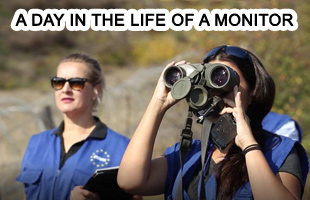The Council prolonged the mandate of the EU Monitoring Mission in Georgia, EUMM Georgia until 14 December 2018. It also allocated a budget of €18 million for the period from 15 December 2016 to 14 December 2017.
The EUMM contributes to stabilisation, normalisation and confidence building between the conflict parties after the war between Russia and Georgia in 2008. The mission provides civilian monitoring of parties actions, including full compliance with the EU-brokered Six-Point Agreement and subsequent implementing measures throughout Georgia. It also informs European policy in support of a durable political solution for Georgia.
The main tasks of the civilian Mission EUMM Georgia are the following:
Stabilisation: monitoring the situation of the stabilisation process and on freedom of movement and actions by spoilers, as well as on violations of human rights and international humanitarian law. The mission operates a hotline to deal with incidents;
Normalisation: monitoring the normalisation process between the conflict parties and how people are affected;
Confidence building: contributing to the reduction of tensions through liaison, facilitation of contacts between parties and joint projects;
Contributing to informing European policy regarding the conflict.
Although the situation in the country is relatively stable, EUMMs contribution remains key. EUMM has successfully launched a number of small confidence building projects under its new facility and will increase those. It has also seen an important positive development with the resumption of the incident prevention and response mechanism in Gali.
The Mission is headquartered in Tbilisi and has three field offices in Gori, in Mtskheta and in Zugdidi. The mission started on 1 October 2008. It is currently headed by Kęstutis Jankauskas and has 200 EU monitors working for the mission.
The European Union continues to fully support Georgias sovereignty and territorial integrity within its internationally recognised borders. The EU actively supports conflict resolution efforts through the work of EUMM but also the EU Special Representative for the South Caucasus (EUSR) and his co-chairmanship of the Geneva International Discussions to which EUMM participates.


